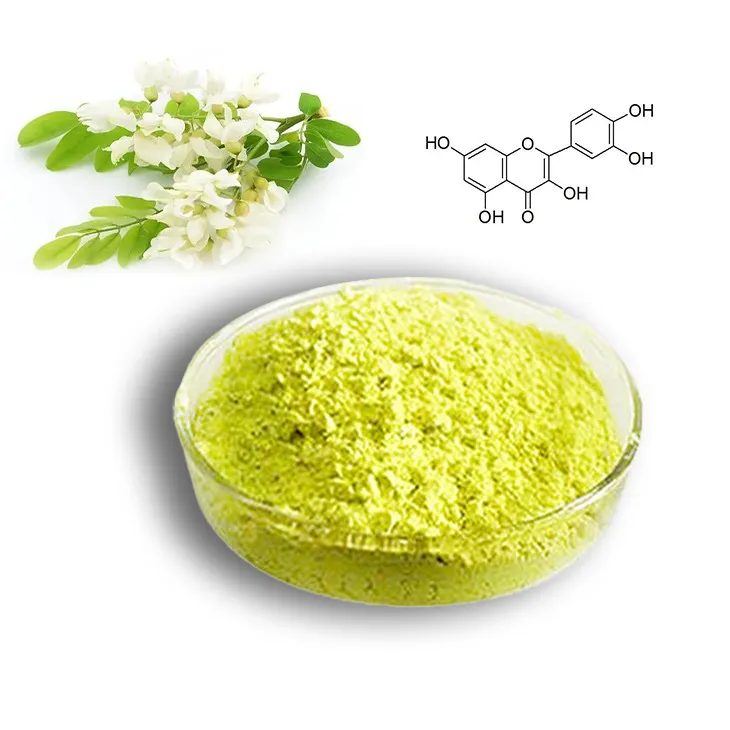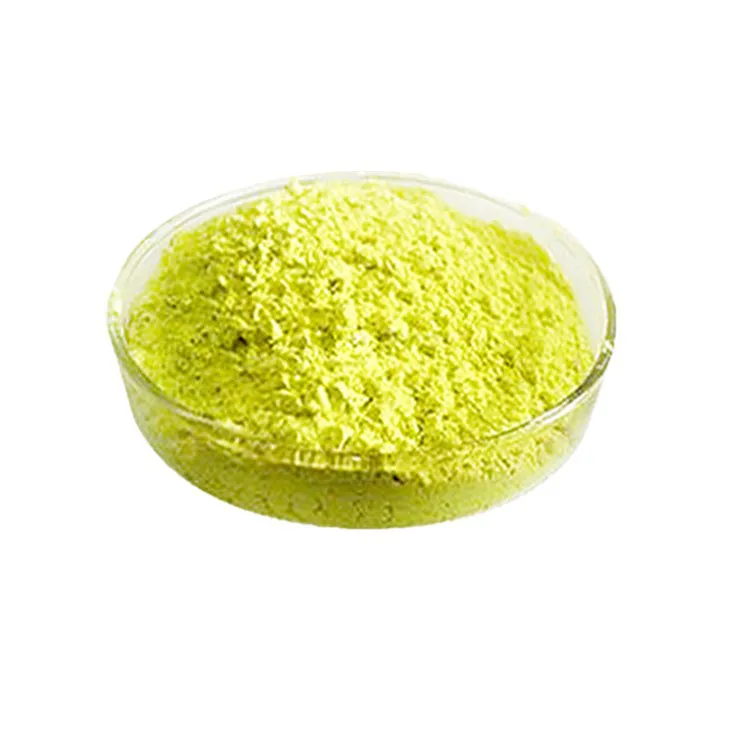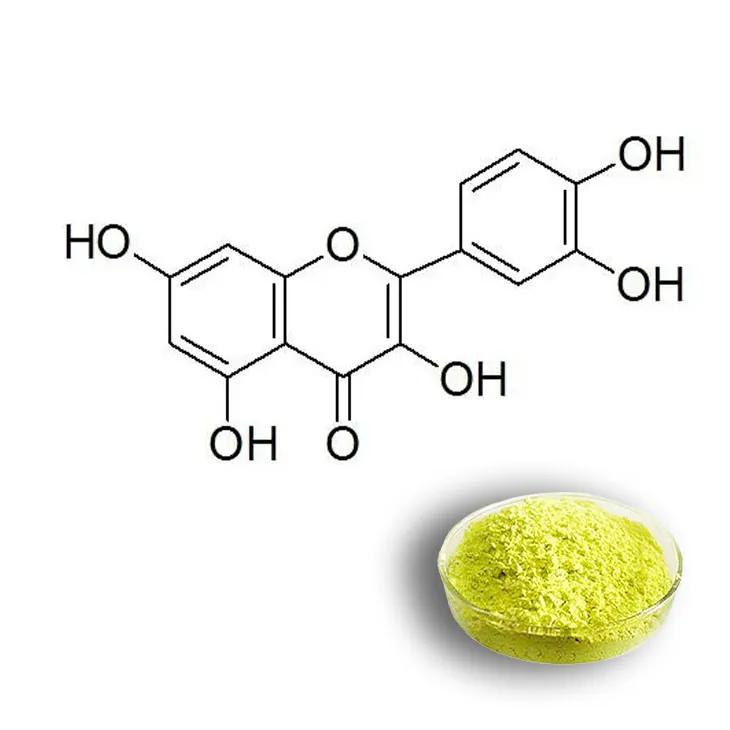- 0086-571-85302990
- sales@greenskybio.com
Use quercetin to prevent diseases and enhance immunity.
2024-11-13

1. Introduction
Quercetin, a natural flavonoid, has been emerging as a remarkable compound with potential in disease prevention and immunity enhancement. Flavonoids are a diverse group of plant - derived compounds known for their various biological activities. Quercetin, in particular, has drawn significant attention due to its antioxidant, anti - inflammatory, and antiviral properties. In this article, we will explore in detail how Quercetin can be utilized to prevent a range of diseases and boost the immune system from multiple perspectives.

2. Quercetin and Cellular Function
2.1. Antioxidant Effects on Cells
At the cellular level, quercetin plays a crucial role as an antioxidant. Cells are constantly exposed to reactive oxygen species (ROS) generated during normal metabolic processes or due to external factors such as pollution and radiation. ROS can cause damage to cellular components like DNA, proteins, and lipids. Quercetin has the ability to scavenge these free radicals, thereby protecting cells from oxidative stress. For example, it can neutralize superoxide anions and hydroxyl radicals, which are highly reactive and can initiate chain reactions of cellular damage. This antioxidant activity helps in maintaining the integrity of cells and preventing premature cell death.
2.2. Influence on Cellular Signaling Pathways
Quercetin also impacts cellular signaling pathways. It can modulate various kinases and transcription factors. For instance, it has been shown to inhibit the activation of nuclear factor - kappa B (NF - κB), a key regulator of inflammation. By suppressing NF - κB, quercetin reduces the expression of pro - inflammatory cytokines such as interleukin - 1β (IL - 1β) and tumor necrosis factor - α (TNF - α). Additionally, quercetin can activate the Nrf2 - ARE (nuclear factor erythroid 2 - related factor 2 - antioxidant response element) pathway. This activation leads to the upregulation of antioxidant enzymes like superoxide dismutase (SOD), catalase, and glutathione peroxidase, further enhancing the cellular antioxidant defense system.

3. Quercetin and the Body's Defense Mechanisms
3.1. Immune System Modulation
Quercetin has a profound impact on the immune system. It can enhance the function of immune cells such as macrophages, lymphocytes, and natural killer (NK) cells. Macrophages are responsible for engulfing and destroying foreign pathogens. Quercetin can increase the phagocytic activity of macrophages, enabling them to more effectively clear bacteria, viruses, and other harmful substances. Lymphocytes, including T - cells and B - cells, play a crucial role in adaptive immunity. Quercetin can modulate the activation and proliferation of lymphocytes, promoting a more balanced immune response. NK cells are part of the innate immune system and are involved in the early defense against viral infections and tumor cells. Quercetin has been shown to enhance the cytotoxic activity of NK cells, making them more efficient at killing target cells.
3.2. Anti - Inflammatory Actions within the Body
As mentioned earlier, quercetin's anti - inflammatory properties are an important aspect of its interaction with the body's defense mechanisms. Inflammation is a natural response of the body to injury or infection, but chronic inflammation can lead to various diseases. Quercetin inhibits the production of inflammatory mediators such as prostaglandins and leukotrienes. It also reduces the infiltration of inflammatory cells into tissues. For example, in conditions like arthritis, where joint inflammation is a major problem, quercetin may help to reduce pain and swelling by suppressing the inflammatory process.

4. Quercetin in Disease Prevention
4.1. Cardiovascular Disease Prevention
Quercetin has several mechanisms through which it can prevent cardiovascular diseases. Firstly, its antioxidant properties protect the endothelium, the inner lining of blood vessels, from oxidative damage. Damaged endothelium can lead to the formation of atherosclerotic plaques. Secondly, quercetin can reduce blood pressure. It may do this by relaxing blood vessels, which in turn improves blood flow. Thirdly, it has anti - platelet activity, which means it can prevent platelets from aggregating and forming clots that could potentially block blood vessels. A study has shown that individuals with a higher intake of quercetin - rich foods had a lower risk of developing heart disease.
4.2. Cancer Prevention
There is growing evidence suggesting that quercetin may play a role in cancer prevention. It can interfere with the growth and proliferation of cancer cells. For some types of cancers, such as breast cancer and prostate cancer, quercetin has been shown to induce apoptosis (programmed cell death) in cancer cells. It can also inhibit angiogenesis, the process by which tumors develop their own blood supply. By blocking angiogenesis, quercetin can starve tumors of the nutrients and oxygen they need to grow. However, more research is needed to fully understand its potential in cancer prevention and treatment.
4.3. Prevention of Respiratory Infections
Given its antiviral properties, quercetin may be useful in preventing respiratory infections. It can inhibit the replication of viruses such as influenza virus and rhinovirus. In addition, its immune - enhancing effects can strengthen the body's defense against respiratory pathogens. During the flu season or in the presence of other respiratory viruses, quercetin may help to reduce the risk of infection or the severity of symptoms if infection occurs.

5. Scientific Evidence Supporting Quercetin's Benefits
5.1. In - vitro Studies
Many in - vitro studies have been conducted to investigate quercetin's properties. In cell culture experiments, quercetin has demonstrated its antioxidant, anti - inflammatory, and antiviral activities. For example, in cultured endothelial cells, quercetin has been shown to reduce oxidative stress markers when exposed to oxidative agents. In virus - infected cell cultures, quercetin has been able to inhibit virus replication, as measured by reduced viral load.
5.2. Animal Studies
Animal studies have also provided valuable evidence. In mice models of cardiovascular disease, quercetin - supplemented diets have been associated with reduced atherosclerotic plaque formation, lower blood pressure, and improved endothelial function. In cancer - prone animal models, quercetin has shown some inhibitory effects on tumor development. For example, in rats with chemically - induced breast cancer, quercetin treatment reduced the number and size of tumors.
5.3. Human Studies
Human studies are more complex but also crucial. Some epidemiological studies have found an association between a high intake of quercetin - rich foods and a reduced risk of certain diseases. For example, in some population - based studies, individuals with a diet rich in fruits and vegetables (a major source of quercetin) had a lower incidence of cardiovascular diseases and certain cancers. However, more controlled clinical trials are needed to determine the exact dosage and efficacy of quercetin in humans for disease prevention and immunity enhancement.
6. Sources of Quercetin and Dosage Considerations
6.1. Natural Sources
Quercetin is widely available in nature. Fruits such as apples, berries (especially cranberries and blueberries), and citrus fruits are good sources. Vegetables like onions, broccoli, and kale also contain significant amounts of quercetin. Herbs such as green tea and thyme are another source. Consuming a diet rich in these foods can provide a natural way to increase quercetin intake.
6.2. Supplementation and Dosage
If considering quercetin supplementation, it is important to be cautious. The appropriate dosage may vary depending on factors such as age, health status, and the specific purpose of supplementation. In general, dosages in the range of 500 - 1000 mg per day have been studied in some clinical trials. However, it is always advisable to consult a healthcare professional before starting any supplementation regimen, as high doses of quercetin may have potential side effects such as gastrointestinal discomfort.
7. Conclusion
Quercetin, with its antioxidant, anti - inflammatory, and antiviral properties, holds great potential in disease prevention and immunity enhancement. Its effects on cellular function, interactions with the body's defense mechanisms, and the evidence from scientific research all support its role in preventing cardiovascular diseases, cancers, and respiratory infections. While natural sources of quercetin should be emphasized as part of a healthy diet, supplementation may also be considered under the guidance of a healthcare professional. However, more research is still needed to fully understand its mechanisms of action and optimize its use for the benefit of human health.
FAQ:
What is quercetin?
Quercetin is a natural flavonoid. It is a type of plant - based compound that is found in many fruits, vegetables, and grains. It has several beneficial properties such as antioxidant, anti - inflammatory and antiviral properties.
How does quercetin prevent diseases?
Quercetin can prevent diseases through its antioxidant, anti - inflammatory and antiviral properties. Its antioxidant property helps to neutralize harmful free radicals in the body, which can cause damage to cells and lead to various diseases. The anti - inflammatory property helps to reduce inflammation in the body, which is associated with many chronic diseases. The antiviral property can help the body fight against viral infections.
How does quercetin enhance the immune system?
Quercetin can enhance the immune system by interacting with the body's defense mechanisms. It can stimulate the activity of immune cells, such as white blood cells, which play a crucial role in fighting off infections. It also helps to regulate the immune response, ensuring that it is neither too weak nor too strong.
What are the effects of quercetin on cellular function?
Quercetin can have various effects on cellular function. It can protect cells from oxidative stress by scavenging free radicals. It can also influence cell signaling pathways, which are involved in many cellular processes such as growth, differentiation and apoptosis. By modulating these pathways, quercetin can help to maintain normal cellular function and prevent the development of diseases.
Is there scientific evidence to support the use of quercetin for disease prevention and immunity enhancement?
Yes, there is scientific evidence to support the use of quercetin for disease prevention and immunity enhancement. Many scientific studies have been conducted to investigate the properties and potential benefits of quercetin. These studies have shown that quercetin can have beneficial effects on various aspects of health, including reducing the risk of chronic diseases and enhancing the immune response.
Related literature
- Quercetin: A Promising Molecule for Disease Prevention and Treatment"
- "The Role of Quercetin in Immune System Modulation"
- "Quercetin: From Plant to Plate to Health"
- ▶ Hesperidin
- ▶ citrus bioflavonoids
- ▶ plant extract
- ▶ lycopene
- ▶ Diosmin
- ▶ Grape seed extract
- ▶ Sea buckthorn Juice Powder
- ▶ Beetroot powder
- ▶ Hops Extract
- ▶ Artichoke Extract
- ▶ Reishi mushroom extract
- ▶ Astaxanthin
- ▶ Green Tea Extract
- ▶ Curcumin Extract
- ▶ Horse Chestnut Extract
- ▶ Other Problems
- ▶ Boswellia Serrata Extract
- ▶ Resveratrol Extract
- ▶ Marigold Extract
- ▶ Grape Leaf Extract
- ▶ blog3
- ▶ blog4
- ▶ blog5
-
Organic Tongkat Ali extract powder factory.
2024-11-13
-
How to make powder with ashwagandha extract.
2024-11-13
-
Rosehip extract manufacturers from China.
2024-11-13
-
The best cat's claw extract in nature.
2024-11-13
-
Chinese Dandelion Leaf Extract Suppliers.
2024-11-13
-
Agaricus Blazei Extract
2024-11-13
-
Curcumin Extract
2024-11-13
-
Green Tea Extract
2024-11-13
-
Saponin Extract
2024-11-13
-
Bilberry Extract
2024-11-13
-
Centella Asiatica Extract
2024-11-13
-
Maitake Mushroom Extract
2024-11-13
-
Yellow Pine Extract
2024-11-13
-
Stevia Extract
2024-11-13
-
Acerola Juice Powder
2024-11-13





















